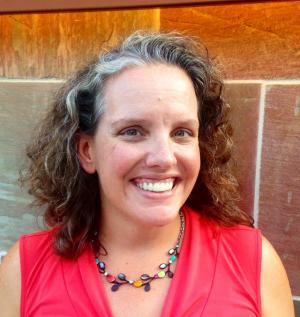- About Archives
- About SAA
- Careers
- Education
- Publications
- Advocacy
- Membership
Below, newsletter editor Melissa Lindberg interviews Oral History Section (OHS) Steering Committee Member Katie McCormick (pictured below) about her experience working with oral history collections and with OHS leadership. Will her story inspire you to get more involved with the Oral History Section? We hope so!

Q: What kind of experience have you had working with oral history collections?
A: My first work with oral history collections was at the Boston College Irish Music Center as a part-time assistant. At that time, I helped conduct a few interviews with local Irish musicians and worked with processing and preserving the audio.
This led to my first full time professional position as Reference Archivist and Oral History Program Coordinator at the University of North Carolina (UNC) at Charlotte. In my role at UNC-Charlotte, I managed an oral history collection of roughly 2,000 interviews, helped obtain grant funding for and developed the New South Voices web portal, did community and campus outreach and training on oral history interviewing and archiving, and worked with our interviewer to collect oral histories associated with others parts of our collections. I also served on UNC-Charlotte’s Institutional Review Board for 6 years as a representative with oral history experience.
When I entered management at UNC-Charlotte as Associate University Librarian for Special Collections and then as Associate Dean for Special Collections at Florida State University (FSU) Libraries, where I am currently, I continued to be involved in the management of oral history collections – from helping determine what to do with legacy collections, to advising community groups, and strategizing on collection growth and access issues.
Q: Can you recall an oral history interview that particularly struck you at any point and why?
A: There’s no single interview that stands out in my mind. I’m lucky to have worked with a broad variety of people exploring many different topics. As an interviewer, I remember my first couple of interviews well – how nervous I was, how poorly I think I asked a few questions, but also how generous my interviewees were and how much I learned.
As an oral history archivist, the interviews I remember most are the ones that had serious audio and technical issues – in one case, an interviewer didn’t actually record the 2 hour interview with a civil rights pioneer and had no idea until we sat down to process it. In another case, student interviewers recorded a critical interview in a diner – so most of the discussion was lost to plates and silverware clanking and conversations from elsewhere in the restaurant. Teaching folks to pay attention to audio fidelity and technical issues has been an important part of my work over the years.
Q: What kind of work does your current institution do with oral history collections?
A: Currently we manage the Reichelt Oral History Collection – an oral history collection of around 1,500 interviews that originated with the Reichelt Oral History Program in Florida State University's History Department. The collection was transferred to our stewardship 4 or 5 years ago and we have spent a lot of time since then creating and updating the finding aid, reviewing the variant consent forms (I believe we have at least 11 different versions, many with highly restrictive starting language), and working on getting as many interviews as we can online.
For putting interviews online, we have been in discussion with our development team on presenting interviews (audio, video, and/or transcripts) as well as related photos and documents in a more streamlined, user-friendly fashion. We have also been trying to define what services we may be able to develop or partner on related to oral history interviewing and training.
Q: Why did you decide to run for SAA's Oral History Section Steering Committee?
A: When I was the Oral History Archivist at UNC-Charlotte, I was much more involved in SAA’s Oral History Section. As I moved into management, my interest remained but I found I wasn’t able to be as engaged. When the most recent opportunity to serve on the OHS Steering Committee came up, I jumped on the chance as a way to re-engage with oral history collections and the great work that folks are doing. I wanted to support the work of colleagues from around the country and help provide the Section with support and guidance.
Q: What have your responsibilities been as a member of the OHS Steering Committee?
A: As a member of SAA’s Oral History Section Steering Committee, I work with the Section, its leadership, and fellow committee members to help set the direction for the Section, to find newsletter content, to recruit new candidates for leadership roles, and participate in discussions around the activities and future of the Section. It has been a wonderful group to work with. It’s always fun to work with passionate, knowledgeable colleagues from around the country.